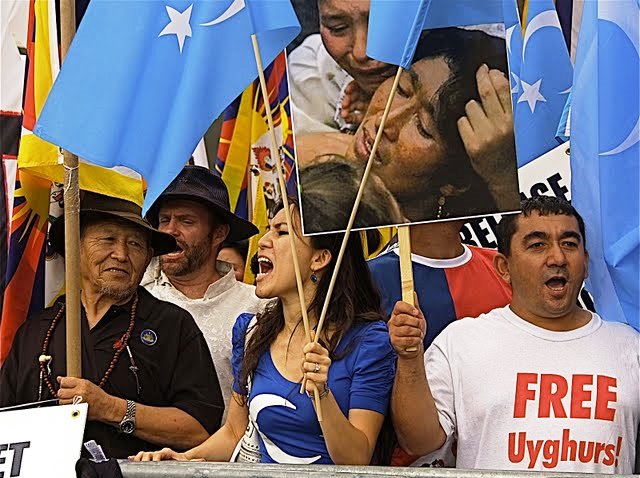Ethnic Cleansing in China Threatens Lives of 3 Million
October 30, 2019
As the most populous nation in the world, China is home to a plethora of ethnic groups. Though 91%, or over 1 billion, of China’s people are Han Chinese, the smaller ethnic groups in China still account for millions of the population because of how large China is. One of these groups is the Uyghur people. They are Turkic Muslims who are natives of the Xinjiang region of China, which they refer to as Turkestan. They have their own language that uses Arabic script as opposed to Chinese characters, their own culture, and are not well-received by China’s government. In fact, beginning in 2014, the Chinese government opened up “re-education camps”—a euphemism for concentration camps—to teach the Uyghurs how to assimilate to the rest of China.
The camps are estimated to have around 3 million inmates. Though China considers them education centers, as they teach Uyghurs skills like e-commerce, law, culture, hospitality, and shopkeeping, they do it in a forceful way. At the camps, conditions are brutal – nearly mirroring those at the concentration camps in Nazi Germany during World War II. Hamid Sabi, a senior lawyer, stated in an interview with the UN, published in the China Tribunal, that inmates at these camps were cut open while still alive. Their organs were used to sell on the black market and for unethical, forced organ transplants.
Adrian Zenz found that Uyghur children are separated from their parents, eating and living at schools in which they are taught to hate their Uyghur identity and view being “Chinese” as superior. They are also encouraged to abandon Islam and practice atheism. These children rarely get to see their real parents and call their teachers “mama.” “According to the report, children are told that they and their parents are both ‘studying’ so that their ‘family life will be happier in the future.’”
This anti-Uyghur sentiment has expanded to outside the camps as well. Innocent Muslim traditions like women wearing headscarves and praying in silence are being considered “malignant tumors” by the Chinese government. Speaking the Uyghur language is being called “unpatriotic” according to The Conversation; as a result, all Uyghurs are being forced to learn Chinese. The government even promotes inter-ethnic marriage between Uyghur and Han Chinese people, used as a tactic to eventually breed out the Uyghur genes. Many Uyghurs get arrested simply for practicing their religion and choosing to identify as Uyghur, and much of the towns within Xinjiang are barren because the majority of their citizens are crammed together in the prisons. Yet much of this has gone unnoticed for years.
China believes the camps are a way to combat “extremism.”
“These measures are no different in nature from the deradicalization and preventive counter-terrorism measures taken by many other countries, including the United States,” claimed Geng Shuang, the Chinese foreign ministry spokesman, in an interview with Australian website news.co.au. It is also difficult outside of China to access Chinese websites that bring up the issue, as China’s government implements censorship upon the Internet that shields the outside world from its internal problems and makes many popular worldwide sites, such as Google, Facebook and Twitter, inaccessible within China.
According to the New York Times, “Beijing has called them boarding schools, explaining detainees are there voluntarily. China said recently that it has reduced the numbers in the camps, although doubts persist about the claim.” However, NBC News was given a rare look inside one of the internment camps October 3, allowing for the spread of global awareness in terms of the Uyghur issue. As of October 8, the US blacklisted 28 Chinese organizations for involvement in anti-Uyghur abuse. Now that the Uyghur issue is becoming more mainstream and widespread after having been virtually unknown outside of China prior to the signing of a letter July 2019 by the United Nations that urged China to free the Uyghurs and close the camps, more countries, organizations, and people are banding together in hopes that change will be made.












